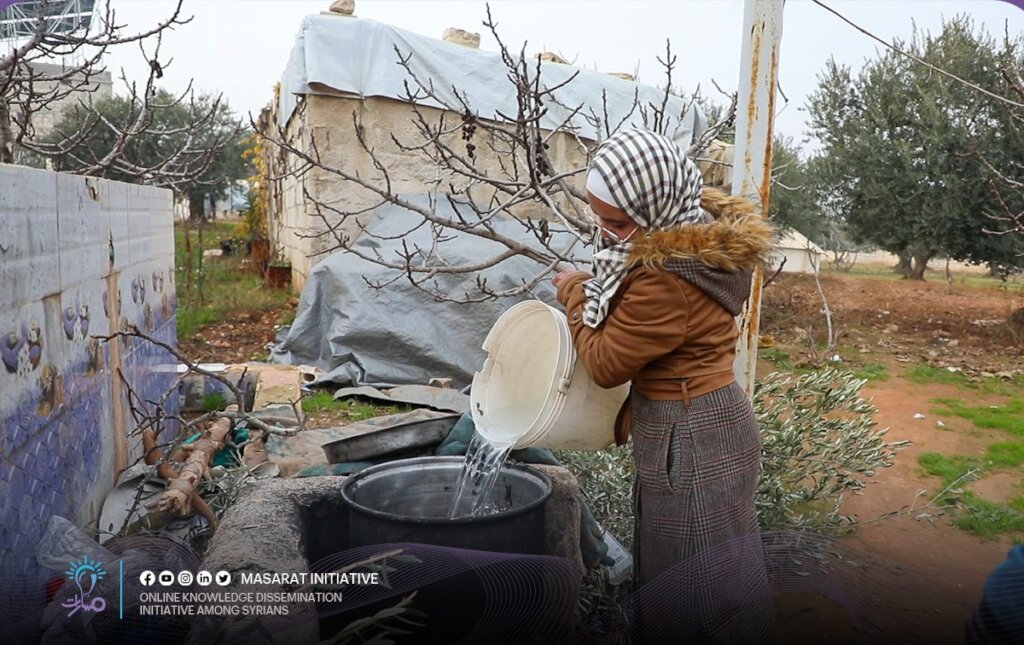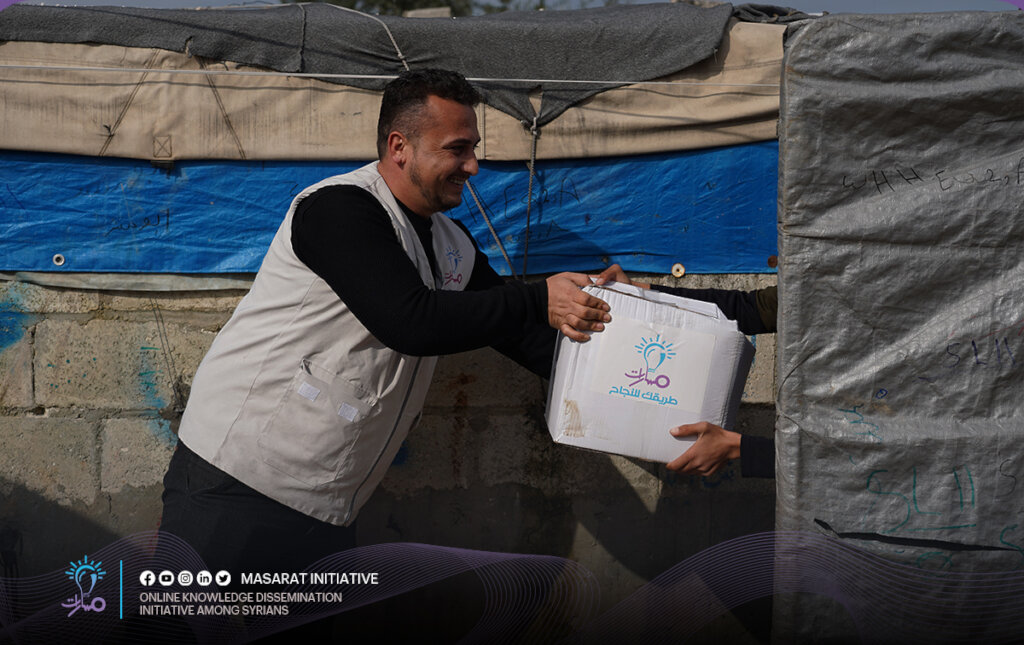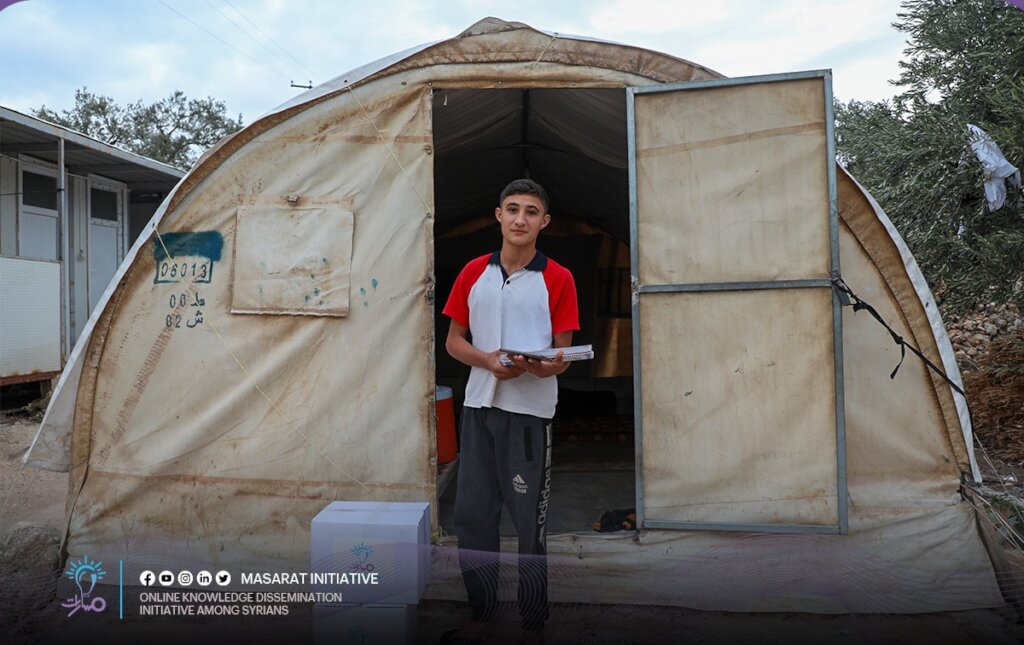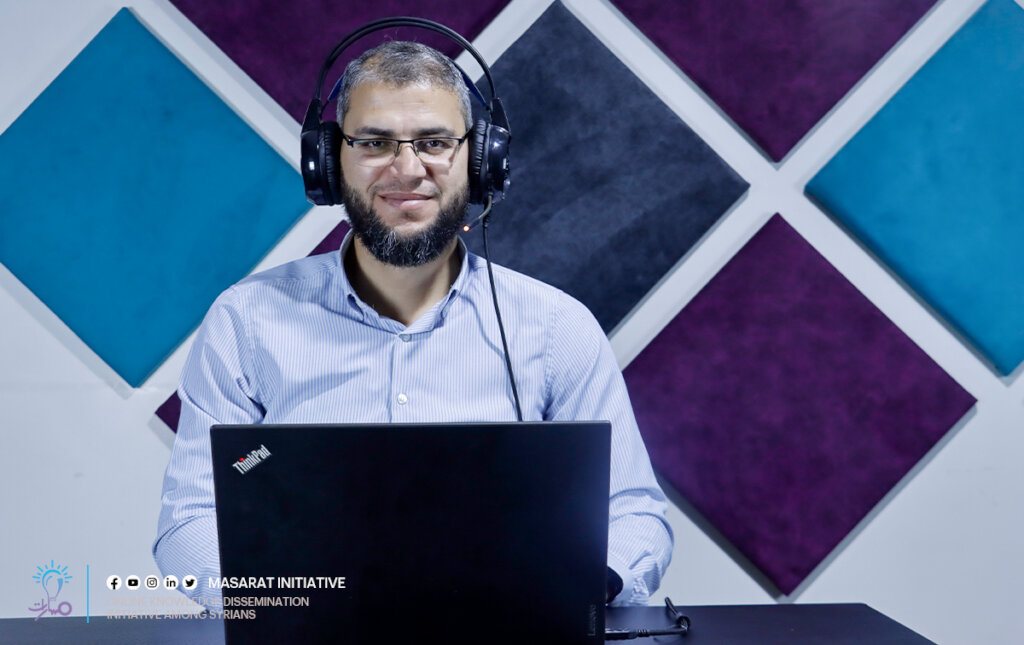Sadaqah, a concept instilled in us from a young age, emphasizes its value, centrality, impact, and blessings. Those who embrace Sadaqah find other paths to goodness more accessible, as the human soul naturally loves money and desires to keep it. Therefore, Sadaqah is a clear sign of faith, as the Prophet Muhammad (peace be upon him) said, “Sadaqah is a proof,” meaning it is evidence of genuine faith.
Definition and Etiquette of Sadaqah
Here, we will discuss two aspects: the definition of Sadaqah and its etiquette
As for the definition of Sadaqah: It is the gift that a person gives to the poor and needy to help and assist them in meeting their needs.
In Shariea terms: It is the gift that a servant gives seeking reward and blessings from Allah
Etiquette of Sadaqah
The etiquette of Sadaqah includes several important aspects:
- Sincerity: Sadaqah should be given solely for the sake of Allah. The Prophet Muhammad (peace be upon him) said, “Actions are judged by intentions, and every person will be rewarded according to their intention.” [Agreed upon]
- Lawful Earnings: Sadaqah should come from lawful and pure earnings, as Allah is pure and accepts only what is pure.
- Best Part of Wealth: Sadaqah should be given from the giver’s own wealth, the best and most loved part of it. Allah says, “You will never attain righteousness until you spend from that which you love. And whatever you spend, indeed, Allah is Knowing of it.” [Quran 3:92]
- Avoiding Harm: One should avoid actions that nullify Sadaqah, such as reminding others of one’s generosity or causing harm. Allah says, “O you who have believed, do not invalidate your charities with reminders or injury.” [Quran 2:264]
- Secrecy: It is preferable to give Sadaqah secretly to avoid showing off and to earn greater reward.
- Kindness: Sadaqah should be given with a cheerful face and a kind demeanor.
At Masarat Initiative, we ensure your Sadaqah reaches those in need in the best possible manner, imbued with your good intentions, serving as support for educational pathways that are essential for building individuals and securing their futures.
Difference Between Zakat and Sadaqah
- Zakat: It is a mandatory act of worship involving the giving of specific types of wealth to prescribed categories of recipients.
- Sadaqah: It is a voluntary act of giving for the sake of Allah.
Differences:
- Zakat is due on certain items like gold, silver, crops, etc., while Sadaqah can be given from any wealth.
- Zakat has specific conditions like the passage of a lunar year and reaching a certain threshold (nisab), whereas Sadaqah has no such conditions.
- If someone dies owing Zakat, it must be paid from their estate, but this is not required for Sadaqah.
- Withholding Zakat is sinful and subject to punishment, while Sadaqah is not obligatory.
- Zakat should not be given to the rich or those capable of earning, but Sadaqah can be given to anyone.
- Zakat is preferably given within the local community, while Sadaqah can be distributed more broadly.
You can send your Sadaqah from anywhere through the Masarat Initiative to support educational projects that help thousands of students continue their schooling and vocational training, enabling them to enter the job market and earn a decent income.
Conditions of Sadaqah
To ensure that Sadaqah is accepted and beneficial, the following conditions must be met:
- Sincere Intention: The intention must be purely for Allah. It should come from a heart that believes in its necessity and virtue. The Prophet Muhammad (peace be upon him) said, “Actions are judged by intentions.” [Agreed upon]
- Lawful Earnings: Sadaqah must come from lawful and pure earnings, as Allah is pure and only accepts what is pure.
- Joyful Giving: It should be given with joy and anticipation of great reward and blessing.
- Respecting Dignity: Sadaqah should be given in a manner that respects the recipient’s dignity and humanity.
- Secrecy: It should be given secretly to avoid showing off, as the Prophet (peace be upon him) said, “Secret charity extinguishes the anger of the Lord.
Benefits of Sadaqah
The benefits of Sadaqah extend beyond the rewards in the Hereafter; they are also felt in this world. Some of these benefits include: that Allah uses Sadaqah to ward off various types of misfortunes, it purifies and blesses one’s wealth, it brings happiness and comfort to the heart, and it serves as a remedy for illnesses. The Prophet Muhammad (peace be upon him) said, “Treat your sick with charity.”
Moreover, Sadaqah is a crucial means of social solidarity, supporting community members like a fortified structure. It enables the wealthy to check on the conditions of those with lower incomes and the needy, helping to meet their essential needs. One of the most significant needs is assisting them in securing their children’s right to education. This is the noble cause that Masarat Initiative strives to facilitate for you. Through your donations to educational projects and student sponsorships, which have enabled many students in northern Syria to achieve great successes in their educational journeys, you contribute to building a strong educational community that serves as a pillar for the nation.
Sadaqah Repels Calamities
One of the most significant effects of Sadaqah is its ability to repel calamities. The Prophet Muhammad (peace be upon him) said, “Give charity without delay, for it stands in the way of calamity.” [Bayhaqi]
Types of Sadaqah
- Obligatory Sadaqah: Such as Zakat, which is mandatory for all Muslims.
- Voluntary Sadaqah: Like donations to the needy, intending to get closer to Allah, which can be:
- Secret Sadaqah: Given privately between the giver and Allah.
- Public Sadaqah: Given openly to encourage others to do good.
- Sadaqah Jariyah (Continuous Charity): Ongoing charity that continues to benefit others and earn rewards for the giver after death, such as building a school or providing educational resources.
Virtues of Sadaqah and Its Reward
- Proof of Faith: As the Prophet (peace be upon him) said, “Sadaqah is a proof (of faith).” The virtues and rewards of Sadaqah are numerous, including.
- Proof of Sincerity with Allah: The Prophet Muhammad (peace be upon him) said, “Sadaqah is a proof,” indicating it is a sign of a believer’s faith.
- Erases Sins: Sadaqah erases sins and extinguishes their fire, as the Prophet Muhammad (peace be upon him) said, “Sadaqah extinguishes sin as water extinguishes fire.”
- Protection from Hellfire: No act of charity is too small, as it could be the reason for forgiveness. The Prophet Muhammad (peace be upon him) said, “Protect yourselves from the Fire, even with half a date.”
- Shade on the Day of Judgment: The giver of Sadaqah will be shaded by their charity on the Day of Judgment. The Prophet Muhammad (peace be upon him) mentioned that among the seven who will be shaded by Allah is “a man who gives charity so secretly that his left hand does not know what his right hand has given.”
- Source of Blessings: Sadaqah is a cause for blessings and their increase, as Allah says, “The example of those who spend their wealth in the way of Allah is like a seed [of grain] that sprouts seven ears; in every ear are a hundred grains. And Allah multiplies [His reward] for whom He wills. And Allah is all-Encompassing and Knowing.” [Quran 2:261]
Your Sadaqah Reaches Its Beneficiaries with Masarat
Masarat Initiative is a non-profit organization founded on the principle that knowledge is a right for everyone. It aims to provide this knowledge to every student in northern Syria whose educational journey has been disrupted by conflicts and disasters.
The initiative encompasses various pathways, including school education, student activities, academic advising, and vocational training. These pathways aim to prepare students academically, develop their skills, and secure sponsorships to enable them to continue their educational journey, ultimately reaching a stage of productivity and effectiveness.
Your contributions to support educational projects mean that you share in all the good that reaches thousands of students through the initiative. So far, Masarat has helped 31,322 students continue their education and, with Allah’s blessing, has achieved many wonderful success stories.
The Virtue of Sadaqah on the Day of Arafah
The Prophet Muhammad (peace be upon him) said, “There are no days in which righteous deeds are more beloved to Allah than these ten days,” referring to the first ten days of Dhu al-Hijjah. [Bukhari]
The virtue of Sadaqah on the Day of Arafah is multiplied, as it has a special status where rewards are greatly increased and blessings are bestowed. Whatever you spend in the way of Allah returns to you multiplied in reward and blessing by Allah’s will.
The Virtue of Sadaqah on Eid al-Adha
Abu Sa’id al-Khudri (may Allah be pleased with him) reported that the Prophet Muhammad (peace be upon him) went to the prayer place on Eid al-Adha or Eid al-Fitr, and he passed by the women and said, “O women, give charity, for I have seen that you are the majority of the people of Hell.” [Bukhari and Muslim]
This hadith indicates the virtue of giving charity on Eid al-Adha and Eid al-Fitr, as it brings happiness to the hearts of the needy, making it a day of joy for them.
The Virtue of Sadaqah in Ramadan
Ramadan is a month of goodness and blessings, and its virtues are numerous. The virtue of Sadaqah in Ramadan includes:
- Closeness to Allah: It brings the servant closer to Allah, earning His pleasure and forgiveness.
- Expiation of Sins: It atones for sins and extinguishes Allah’s wrath.
- Purification from Greed: It purifies the soul from miserliness and accustoms it to generosity and giving.
- Helping the Needy: It helps the poor and needy, spreads love and affection among people, and strengthens social solidarity.
The Virtue of Sadaqah on Fridays
Ibn al-Qayyim (may Allah have mercy on him) mentioned the special virtue of giving charity on Fridays:
“Charity on Friday has a special merit compared to other days of the week, similar to the merit of charity during Ramadan compared to other months. I witnessed Shaykh al-Islam Ibn Taymiyyah, if he went out to the Friday prayer, he would take whatever bread or other things he found in the house and give it in charity secretly. I heard him say, ‘If Allah has commanded us to give charity before talking privately with the Messenger of Allah (peace be upon him), then giving charity before conversing with Allah is even more deserving of virtue.’”
The Virtue of Continuous Charity (Sadaqah Jariyah)
Sadaqah Jariyah is what remains after a person’s death, with its reward ongoing. The Prophet Muhammad (peace be upon him) said, “When a person dies, their deeds come to an end except for three: Sadaqah Jariyah, beneficial knowledge, or a righteous child who prays for them.” [Muslim]
The Virtue of Donating Clothes and Eid Clothes
Regarding the virtue of donating clothes and Eid clothes, the Prophet Muhammad (peace be upon him) said, “Any believer who feeds another believer who is hungry, Allah will feed him from the fruits of Paradise. And any believer who gives water to another believer who is thirsty, Allah will give him drink from the sealed nectar. And any believer who clothes another believer who is naked, Allah will clothe him with green garments of Paradise.” [Tirmidhi and Al-Albani]
Who Are the Beneficiaries of Sadaqah?
When asking who the beneficiaries of Sadaqah are, the first to come to mind are the poor and the needy. Scholars have distinguished between them:
- The Poor: Those who have no wealth or income to suffice them.
- The Needy: Those who have some wealth or income, but it is not enough to cover all their needs, such as a person with some money but many dependents and expenses.
Hadiths about Sadaqah
Several hadiths from the Prophet Muhammad (peace be upon him) emphasize the virtue of Sadaqah, including:
- Abu Huraira (may Allah be pleased with him) reported that the Prophet Muhammad (peace be upon him) said, “Whoever gives charity equal to a date from honest earnings – for Allah only accepts what is pure – Allah will accept it with His right hand and nurture it for its giver as one of you nurtures his foal until it becomes like a mountain.” [Bukhari and Muslim]
- Abu Huraira (may Allah be pleased with him) reported that the Prophet Muhammad (peace be upon him) said, “Every day two angels descend, and one of them says, ‘O Allah, give him who spends something, in place of what he spends.’ The other one says, ‘O Allah, give him who withholds (his money) destruction.'” [Bukhari and Muslim]
- Abu Sa’id al-Khudri (may Allah be pleased with him) reported that the Prophet Muhammad (peace be upon him) went out on Eid al-Adha or Eid al-Fitr to the prayer place and admonished the people to give charity, saying, “O people, give charity.” Then he passed by the women and said, “O women, give charity, for I have seen that you are the majority of the people of Hell.” [Bukhari and Muslim]
- Abu Huraira (may Allah be pleased with him) reported that the Prophet Muhammad (peace be upon him) said, “Allah said, ‘Spend, O son of Adam, and I shall spend on you.'” [Bukhari and Muslim]
Invest in Goodness with Masarat
Do not deprive yourself of all the goodness mentioned in the above hadiths. Through Masarat Initiative and with easy steps, you can bring happiness to many students in northern Syria, helping them return to their school seats and continue their education, which they were deprived of due to difficult regional circumstances. Contact us now, so that goodness reaches your record of deeds and happiness reaches your heart.










